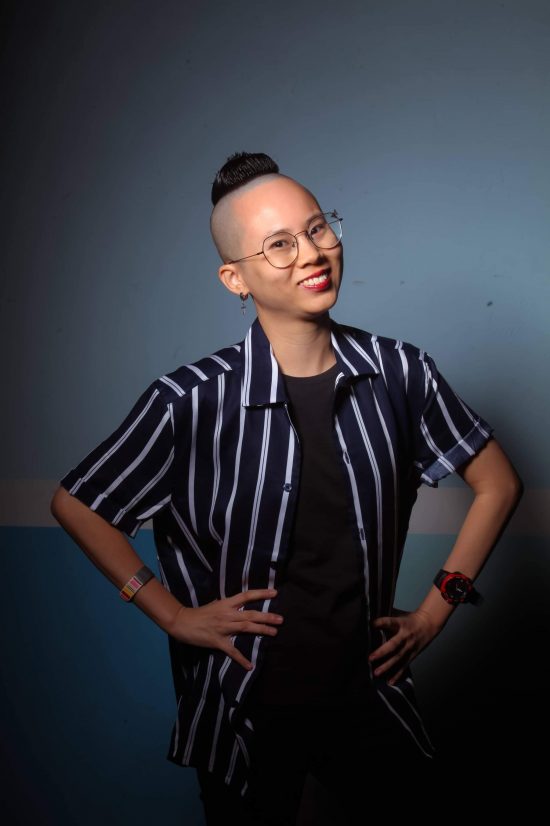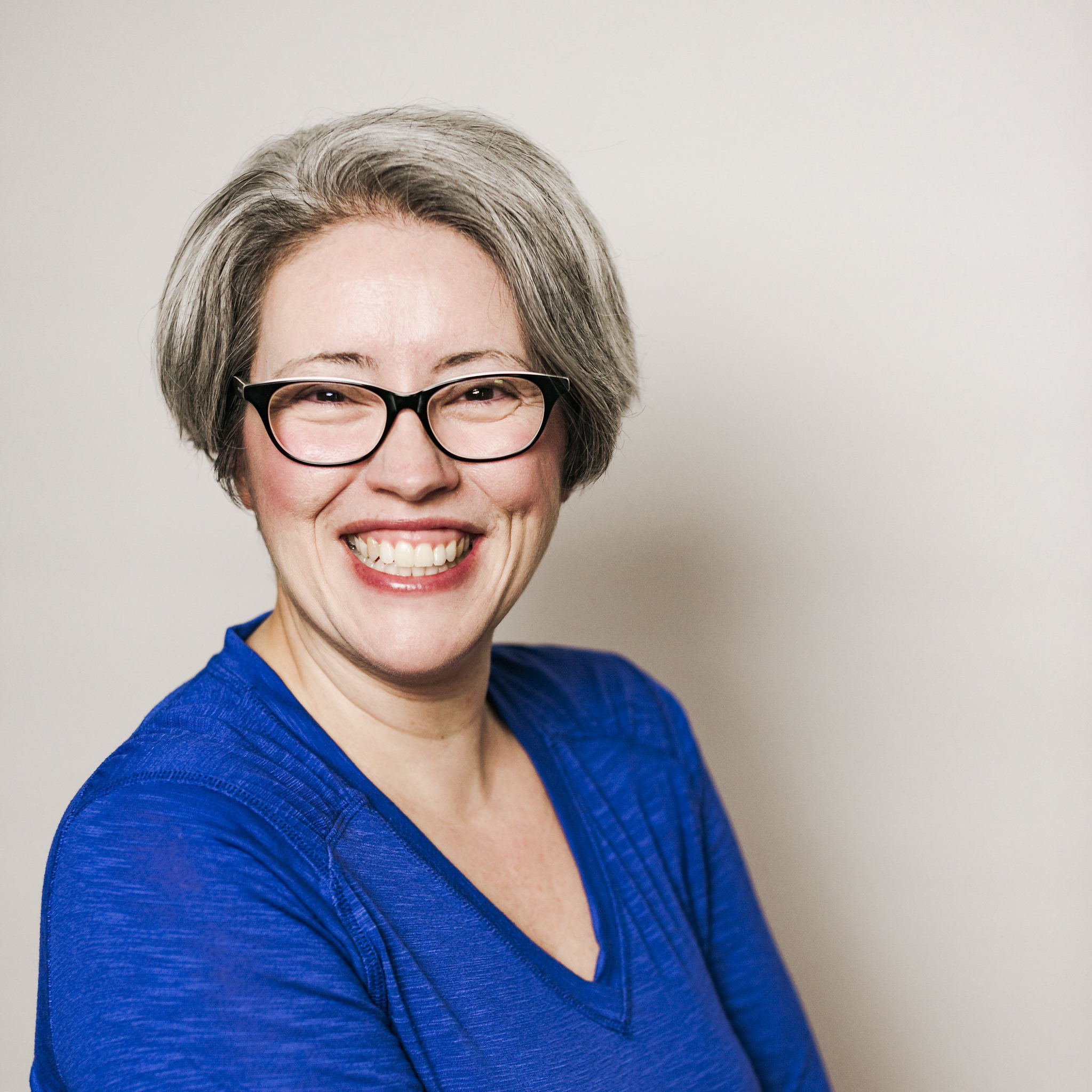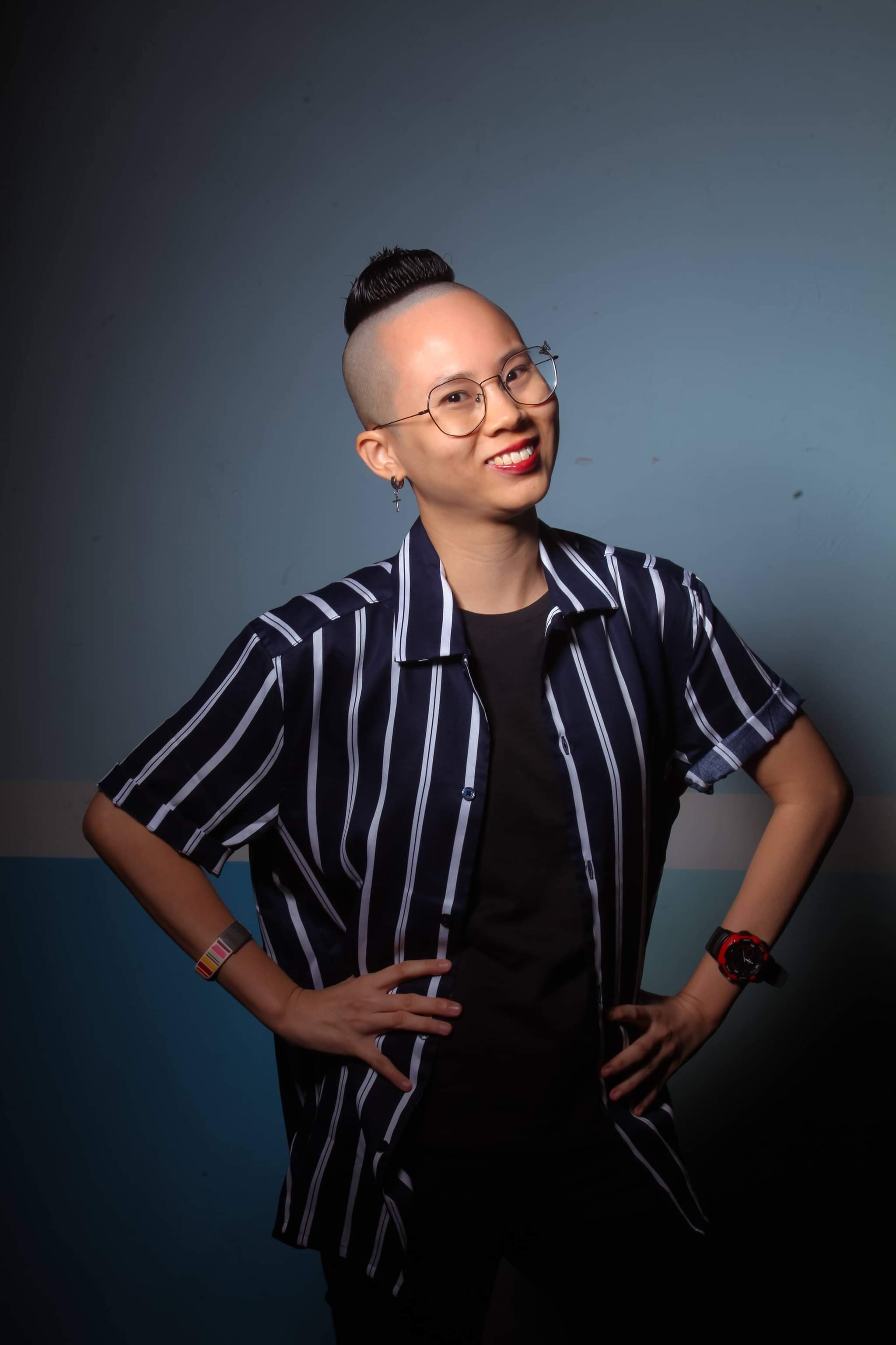
Juliana Heng: Common Ground and Silver Linings
June 27, 2021
Prakash Daniel Photography
Destination - Kuala Lumpur, Malaysia
The world is in the midst of a host of debuts, including the blinding sight of faces that haven’t seen true sunlight for many months, poking out of doors and taking the cautious first steps back into the great outside.
It’s only fitting that we debut something of our own for the podcast: the 2021 Summer Vacation Series. While we’re in no way on vacation, the theme speaks more to that most summer-y of concepts, traveling to new places near and far. Many of our guests are local to Austin, but during the pandemic we had the honor of “hosting” comics from around the world on our Isolation Comedy series, and the Vacation Series is our way of bringing them back for the full Comedy Wham interview treatment.
Though Ms. Rona (COVID-19, for those who are not on such familiar terms with her) has created a lot of strife in the comedy world, one particularly glowing silver lining has been the way that virtual comedy spaces have risen up, bridging the geographical distance between creators and audiences across the world. I will not thank Ms.Rona for much (though I admit that quarantine freetime led me to my wonderful newfound hobby: birding), but if not for the pandemic, we perhaps would not have so soon become acquainted with Juliana Heng — an early but rising talent hailing from Kuala Lumpur, Malaysia.
Watching Heng’s virtual performances, there’s a special charm that immediately strikes you. They (Heng’s pronoun, as a non-binary individual) emanate such personal joy in their performances that it is almost as if they don’t need the audience, but are rather allowing the audience in to laugh along with them. And it is indeed a privilege to laugh along with them.
Of course, starting comedy in Kuala Lumpur is quite a different feat than starting in Austin, Texas. As Heng explained, comedy is still nascent in Malaysia, compared to many other countries. When Malaysians want to do something entertaining after a hard week at work, they often turn to movies, theater, maybe karaōke. But thanks to foremothers and forefathers like Harith Iskander and Joanne Kam, the comedy infrastructure in Malaysia today (featuring two comedy clubs and a handful of independent show producers) is a vast improvement from what it was even fifteen years ago. “We are trying to work towards a direction where comedy will become something like, ‘Hey, let’s go to the cinema,’” Heng says. “You know, we want it to be that common.”
Interestingly enough, comedy was not love at first sight for Heng; it wasn’t even love at second sight. Though Heng recalls first attending a comedy show in 2011 — a reward from their boss to make up for a stressful season of chartered accounting — it took a small career crisis before Heng was enticed to get up on stage. But, sure enough, as Heng began to resent their increasingly boring and meaningless job, their eyes started to wander for new opportunities. For Heng, opportunity appeared in the form of a bright orange flyer at the train station that read “Stand-up comedy, newbies welcome!” And with that, their fate was sealed. Plus, Heng couldn’t turn away from the bargain: Do three minutes onstage, get in free? Sign them up!
Always a bit of a loner, Heng felt especially drawn to comedy for its power to connect people. “The audience are all strangers, they all come from different walks of life, and they only meet each other in the comedy club,” Heng muses, “but the moment someone tells a joke and the audience laughs, by the end of the open mic or even the comedy show, they become friends.”
Not only that, but comedy created new reasons to travel — taking Heng throughout the regions of Malaysia, as well as to Singapore, Thailand, and the United Kingdom. Of course, just when Heng thought that 2020 would be another year for traveling and doing comedy, Ms. Rona had other ideas. Mercifully, the virtual comedy space rose up to cushion the blow. Ever the one to find the silver lining, Heng contends that virtual rooms truly make touring accessible for all walks of comedians, even those with day jobs or tight budgets: no flight tickets necessary, just a laptop and an internet connection. Being on the autism spectrum, Heng speculates that their own neurodivergence may make it even easier to embrace Zoom comedy as an alternative to live shows: “I look at the audience and have to assume they are the best audience. I can’t tell if they are having a bad day. Can’t tell the difference.”
Still, as many comedians eventually do, Heng hit a slump. Failing to get booked like others around them, they wondered if comedy was a pipe dream after all. Instead, they decided to return to an older hobby and talent of theirs: poetry. With the pressure to be funny out of the way, Heng wrote the poem “AUsome” — an introspective deep dive into their relationship with autism. Through this poem — which is featured in Heng’s one-hour medley show Walking on Spectrum — Heng realized that these more personal topics could be translated into their comedy. “The poetry [was] like the setup,” Heng reflects, “ and I just need[ed] to look for the punchlines.” Of course, though Heng views poetry as the catalyst for their comedy comeback, they also continue to value poetry in its own right: “It’s therapeutic. And it allows me to be real. And I don’t need to joke around my circumstances, if I’m not ready to.”
Heng’s special has been featured at festivals in Australia, New Zealand, and New York. Seeing the favorable reaction from audiences off the spectrum and from the other side of the globe, Heng discovered how much common ground can be found between people, despite our differences and idiosyncrasies: “Turns out our experiences are pretty universal, after all,” Heng says. Featuring comedy, spoken word poetry, and storytelling, the medley is what truly makes Heng’s special, well, special, but it also allows Heng to balance entertainment and honesty. For the more harrowing personal topics, Heng relies on the spoken word, while the comedy is the “spoonful of sugar,” as Heng puts it.
Creating awareness through comedy is especially important to Heng “because in Malaysia, mental health is pretty taboo still … People don’t talk openly about depression, … ADHD, these are all pretty taboo … And then we pretend to live a normal life because, as Asians, we usually want to portray just the positive façade of our life.” Heng has grappled with this lack of awareness firsthand when acknowledging their own autism in front of Malaysian audiences, finding that the audiences either refuse to believe, or they tune out, mistakenly attributing Heng with the mental age of a child. Through their material, Heng hopes to spark conversation about these topics — from mental illness, to autism, to queerness — ultimately aiding in their demystification and destigmatization.
Unfortunately, at the time of Valerie’s interview with Heng, Malaysia was undergoing its third lockdown. But, in the theme of finding silver linings, Heng chooses to see the lockdown as a preparation phase — a time to sow seeds and water them. For Heng, that means performing more virtual comedy, writing, workshopping material, reading books, and studying acting (because they love watching Korean dramas). “Although it is hell,” Heng admits, “I still want to make a paradise out of hell.”
And with front row seats (from the comfort of our living rooms!) to see talented, farflung comics like Heng, even when we’re oceans apart, we’re finding it pretty easy to see the bright sides and spoonfuls of sugar, too.
Want to know more about comedy in Kuala Lumpur, Malaysia?
Heng’s recommendations for comics to check out from Malaysia include: Shaq Munisamy and Garu Rumon. They also mentioned the very famous Harith Iskander and Joanne Kam who are the godfather and godmother of Malaysian comedy, respectively.
Heng wants us to know that Malaysia has a relatively young comedy scene, but it is beginning to hit its stride.
Follow Juliana
- Website — mxjulianaheng.com
- Instagram — @mxjulianaheng
- Facebook — Facebook.com/mxjulianaheng
- Youtube — Youtube.com/mxjulianaheng
Juliana can be seen and heard:
- I Laugh KL — In person and online showcase produced by Juliana
- Walking On Spectrum — written, produced, and featuring Juliana comedy and poetry

Valerie Lopez

Sara Cline

